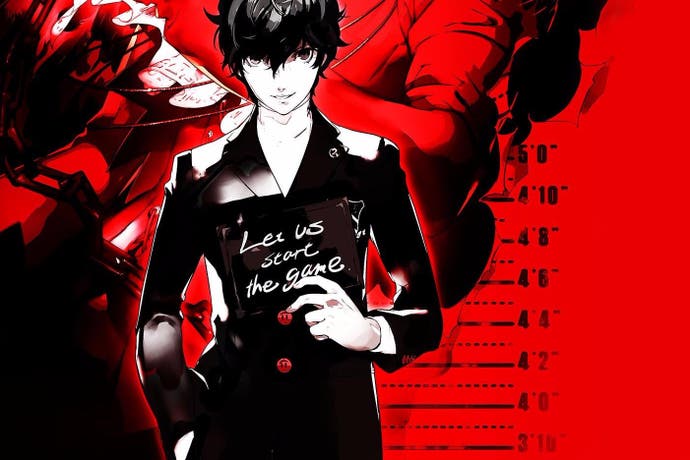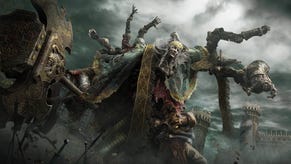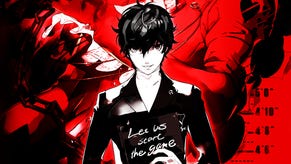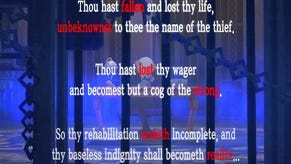Persona 5's translation is a black mark on a brilliant game
Why do fans of JRPG giants assume Japanese writers can't write?
Editor's note: A few weeks ago a startling, brilliant and insightful site popped up on the internet, its sole purpose to highlight the problems with Persona 5's translation. It's a beautiful thing - almost as stylish as the game itself - and its creator Connor Krammer raises some fascinating points. We've invited him to go into detail here, and I implore you to check out Connor's site too.
Persona 5 is the latest casualty to bad translation in the JRPG genre, and it likely won't be the last. Yet oddly, many JRPG fans don't seem to care that the stories they love so much are frequently warped and degraded by stiff, sometimes entirely inaccurate writing by Japanese-to-English translation staff.
Perhaps the problem is the tacit agreement that a story can only be truly appreciated in its original form, and that any other language can only tell an inherently inferior tale. Translation, the reasoning goes, is a killer of nuance and detail. Yet most agree that if it's an evil, it's a necessary one.
Thus, a mental compromise: if language B can't do justice to a work written in language A, then the next best option must be somewhere in between, theoretically in language B but as close to the original language as possible. Sometimes the writing might seem stilted and foreign, but then again, it is foreign media, after all!
Welcome to Literal Translation Hell, where good stories go to die. And most populous among the damned is a particular breed of story hailing from Japan: the JRPG.
But let's step back a bit, because discussion of translation in English inevitably encounters a stumbling block: most people born and raised to the English tongue have never needed to think about translation. If that describes you, don't worry, because perhaps unexpectedly, you only need to know one language to understand the basics of translation.
What is translation?
Though people generally think of language when the topic of translation comes up, at its heart translation is just taking an idea and retelling it so that it can be understood by a new audience. Words and language aren't required, though language translation is so prominent it's often what first jumps to mind.
In fact, translation is so common that people don't realise how good they are at judging it. Have you ever watched a movie adaptation and hated it? If so, you already know what bad translation looks like.
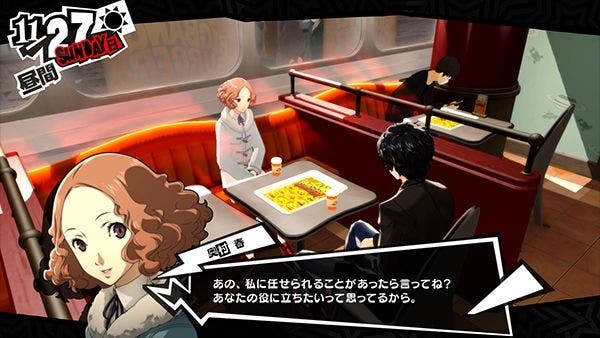
Translated text can be judged by the same standards as a movie adaptation - which is itself merely a translation of words to film. Does the translation faithfully depict the ideas and style of the original? Do the characters feel authentic and accurate? Or have, perhaps, bad acting and awful direction left the story a terrible, stilted mess?
The idea of translation as a word-by-word process is attractive and simple, but think again about films. The best screenwriters know that their job is to convey an author's ideas and style to the audience in a different medium, not to mechanically copy the author's every word. Pretending that film works the same way as text is a recipe for a bad adaptation, and actually does a worse job of being faithful to the original author. After all, the most literal adaptation of a novel would just be a recording of pages turning, and that would make for a terrible film.
So what happens when a translator treats their work like a bad movie adaptation? Well...
Welcome (back) to literal translation hell
...you get Persona 5, or any of the dozens of translated Japanese games out there with stiff, stilted writing in English. (And to head one issue off at the pass: I'm not advocating for censorship. That's an entirely different problem, and not one that affects Persona 5.)
Persona 5's general brilliance and widespread acclaim soften the impact of its translation but does not remedy it. Nor do they somehow change the fact that the English release is inferior to the Japanese as a consequence of its translation.
While not every line in Persona 5 is a dud (and there are indeed some shining moments), the issues are extensive and run deep. Errors range from grade-school grammatical flubs and character voice catastrophes to complete mistranslations that fundamentally alter the meaning of the text.
A common view is that the script's sheer size should excuse any errors it contains - a sentiment frequently followed by comparisons to novels infamous for their length, such as War and Peace. Yet novels of titanic scale are published in English all the time without a fraction of the problems present in Persona 5. Many of them, War and Peace included, are themselves translations.
The double standard is blunt and, frankly, saddening. To accept blatant errors in a video game script is to admit that video games and their players don't deserve the level of quality that is commonplace in other mediums. And that acceptance is all the more poisonous when the material is translated, because it marks an admission that not only do players not deserve quality, but non-native speakers least of all.
Persona 5's translation contains an impressive array of errors that can't be reproduced in full, but here are five choice samples:
- 'Suguru Kamoshida was a scum.'
- 'Are you skipping out on the volleyball rally? I guess I expect it from you, transfer.'
- 'You're done for, along with this abominous world!'
- 'Just to say "heavy rain," as many things fall as there are countries in the world.'
- 'It means they're holding nothing back and are serious to kill us!'
And the above errors are actually preferable in their raw, unmistakable quality. The more insidious errors alter meaning on a fundamental level and in ways that readers in English shouldn't be expected to detect. Take an early scene in the game, in which a detective seemingly predicts another person's phone call as if psychic. In Japanese, he was actually referring to a previous call.
Additionally, as so many JRPGs do, Persona 5 suffers from stock translation. These are translations of phrases that look like proper English, but which are used overly frequently and in inappropriate contexts. The Japanese 'shikata ga nai' is often translated to 'it can't be helped', for example, which isn't intrinsically problematic. Yet bad translation results in the repetition of that rendering over and over and over, regardless of who the speaker is and what their speaking voice is like.
A common refrain among defenders of literal translation is that to alter the exact, word-by-word phrasing is to change some ineffable, distinctly Japanese aspect of the source text. That argument greatly overestimates how deliberate the use of the phrase actually is and assigns too much importance to exact wording at the cost of the more important value: how the original writers intended the character to come across.
Put yourself in the shoes of an author and ask yourself: if you had to convey a particular character, which line would you choose to best express their personality?
A punkish character:
- 'It can't be helped.'
- 'This thing's out of our hands, yo.'
A formal character:
- 'It can't be helped.'
- 'This state of affairs simply cannot be altered.'
A shy character:
- 'It can't be helped.'
- 'I guess... i-if it's like that, we can't help it.'
A philosophical French character:
- 'It can't be helped.'
- 'C'est la vie.'
If a translator chooses the first option in all four cases, suddenly they've destroyed the unique voice of those characters and made them all sound the same. To claim that a translator should always pick the first option because it 'best represents' the original creators is to claim that the original creators had little taste or skill in their craft.
It's unclear exactly why Persona 5's translation is so poor. Managerial issues are almost certainly at play, as indicated by the large translation staff, which includes six translators and eight editors. This was 'the most number of translators and editors on a team' at Atlus, says Yu Namba, the Persona 5 localisation project lead.
And though it's tempting to point fingers at translators and editors for being subpar, it's unfair to do so without knowing the conditions they were working under. Even an excellent translator will introduce errors if given unreasonable deadlines, and editors can't be expected to make a translation consistent when there are so many of them on the same project. And if subpar staff were present, they certainly didn't hire themselves.
While we can't know for sure what happened, there is one cause that we can point to with undeniable certainty: Atlus, either the American or Japanese branch, simply didn't think players would care about Persona 5's story enough for translation quality to matter.
It might be worth asking why that is.
